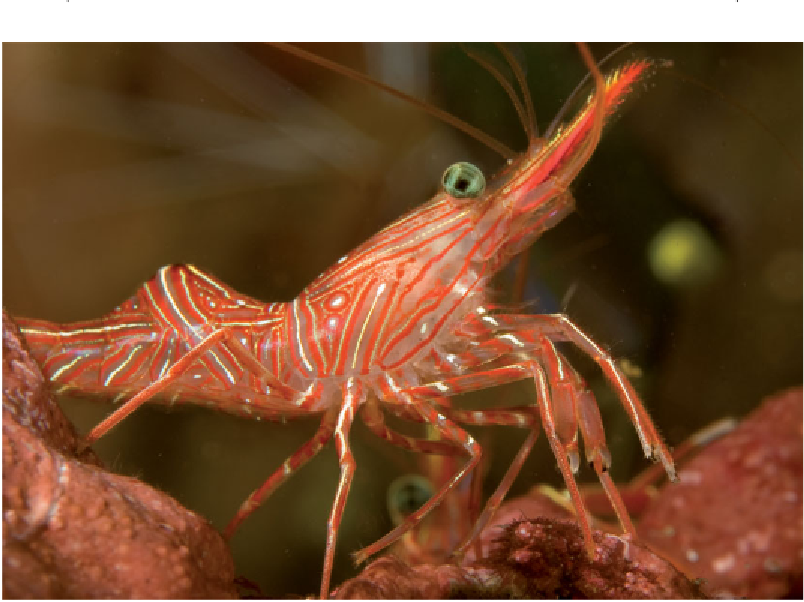Travel Reference
In-Depth Information
Figure 66
This Durban dancing shrimp
Rhynchocynetes durbanensis
rules a tiny part of
the Three Islets reef.
that we had seen in the Thai waters were absent in Myanmar because of over-
fi shing. The great diversity of the Mergui reefs should have supported many
more fi sh than the Thai reefs, but the fi sh populations had been decimated.
The Thai reefs on which so much of the country's tourism depends are
informally policed by the dive boat operators. Fishermen venture into the
waters around Thailand's Similan Islands at their peril. But there is no such
protection in Myanmar.
The loss of fi sh that are at or near the top of the food chain will eventually
cause a cascade of damage to Myanmar's reefs. These fi sh, the secondary and
tertiary consumers, are essential for maintaining the reef's diversity. If par-
ticular species of corals, algae, and small animals on the reefs become over-
abundant, the grazing fi sh will fi nd them more easily and prey on them pref-
erentially. This allows rarer species to multiply. Then, when those formerly


